National Family Violence Networking System Conference 2022
Date/Time: 16 November 2022, 9am - 5pm
Venue: The Chevrons

This year marks the 26th anniversary of our establishment in family protection work. The theme for this year’s conference is “Breaking the Cycle of Violence | Restoring Safety: Insights into Working with Persons Causing Harm”. We are excited to present a series of keynote addresses and workshops by international and local speakers to help us better understand patterns of harmful behaviour, and better engage and work together with persons who cause harm.
Established in 1996, the National Family Violence Networking System (NFVNS) is an island-wide networking system that:
- Connects the police, courts, hospitals, social service agencies, and the Ministry of Social and Family Development into a tighter network of support
- Provides multiple access points for families affected by violence to seek help.
Since 2001, the Family Violence Dialogue Group (FVDG), a member of the NFVNS, has organised the NFVNS Conference to strengthen partnerships and share best practices in policy, practice and research on family violence.
Event Details
Date: 16 November 2022, Wednesday
Time: 9am to 5pm
Address: The Chevrons, Level 3 (48 Boon Lay Way, Singapore 609961)
Registration is by invitation only. Please register via the link in the invite sent to your email.
| Time (hrs) | Programme |
|---|---|
| 0830 – 0900 | Registration and Breakfast |
| 0900 – 0915 | Opening Performance |
| 0915 – 0930 | Opening Address by Host (Minister of State Ms Sun Xueling) |
| 0930 – 0950 | Family Violence Dialogue Group (FVDG) Appreciation Awards |
| 0950 – 1000 | Screening of Videos |
| 1000 – 1030 | Morning Tea Break |
| 1030 – 1130 | Keynote Address 1 |
| 1130 – 1245 | Concurrent Workshops 1
|
| 1245 – 1400 | Networking Lunch |
| 1400 – 1515 |
Concurrent Workshops 2
|
| 1515 – 1530 | Afternoon Break |
| 1530 – 1630 | Keynote Address 2 |
| 1630 - 1700 | Closing |
Opening Address

Ms Sun Xueling,
Minister of State for Social and Family Development & Home Affairs
Ms Sun Xueling was elected a Member of Parliament in September 2015. She currently holds the position of Minister of State in the Ministry of Home Affairs and the Ministry of Social and Family Development. Ms Sun serves as a Board Member of the Chinese Development Assistance Council.
Ms Sun served in the Ministry of Education from 2020 - 2022 and had also served in the Ministries of Home Affairs and National Development from 2018 - 2020.
Before entering politics, Ms Sun spent more than a decade in the private sector in finance and investments. She received her Master of Science in International Political Economy from the London School of Economics and Political Science, and also holds a Bachelor of Social Sciences in Economics from the National University of Singapore.
Keynote Speakers
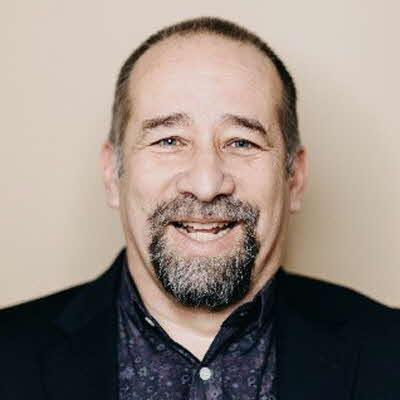
Keynote Address 1
Mr David Mandel
Executive Director
Safe & Together Institute
David Mandel - Keynote Address 1 (notes).pdf
With over 30 years’ experience in the domestic violence and child welfare fields, David and his Safe & Together Institute focus on improving systems' responses to domestic violence when children are involved. David has developed the Safe & Together™ Model to improve case practice and cross system collaboration in domestic violence cases involving children. He has identified how a perpetrator pattern-based approach can improve our ability to help families and promote the development of domestic violence-informed child welfare systems.
David and the Safe & Together Institute have worked with governments and NGOs in Canada, the US, Australia, Asia and United Kingdom. Through their live training, organisational consulting, e-learning, and Trainer Certification and Partner Agency Program, the Safe & Together Institute provides organisations and systems with a wide range of tools to partner with adult and child survivors and intervene with perpetrators. Currently the Institute supports almost 300 Certified Trainers and 80 Partner Agencies worldwide. David hopes that his work ends the use of “failure to protect” mentality in domestic violence cases and helps systems better work with complex cases involving mental health issues, substance misuse and domestic violence. Recent work with the national Family Court of Australia has brought the same child centered domestic violence lens to custody and access matters. Using an intersectional analysis, the Model is designed to be flexible and relevant across diverse situations.
David has written or co-written numerous journal articles, book chapters and white papers including his most recent ones on how perpetrator intervention program completion certificates can be dangerous for survivors, and on worker safety in the context of domestic violence. He is regularly part of research studies including Professor Cathy Humphreys’ recent series of Australian national research projects on intervening with perpetrators, and complex case practice.
Synopsis of Keynote Address 1
Intervening with Perpetrators as Parents: Strategies for Child and Adult Survivor Safety & Well-Being
Attempts to address domestic violence have often ignored the role of the perpetrator as parent. This intervention gap has had significant consequences for adult and child survivors. In this session, David Mandel, the creator of the Safe & Together™ Model, will outline a perpetrator pattern-based approach and how it helps improve outcomes for adult and child survivors. He will challenge the “myth of the child witness”, offer alternative methods for assessing harm to child functioning and outline how to improve partnering with adult survivors.
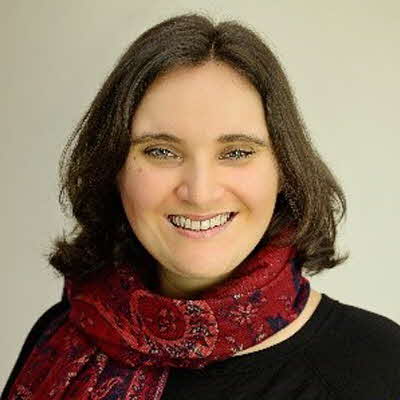
Keynote Address 2
Dr Emma Katz
Senior Lecturer, Liverpool Hope University
Author of Coercive Control in Children’s and Mothers’ Lives
Dr Emma Katz - Keynote Address 2.pdf
Dr Emma Katz, Ph.D., is an internationally renowned expert in family violence and coercive control, whose work has influenced legislation in the UK and globally. Coercive control is a form of domestic abuse where perpetrators use a pattern of threats, intimation and abuse to control and dominate their partner and children, depriving them of independence and isolating them from support. Because coercive control does not always involve physicalviolence, it has often been under-reported and under-recognised.
Emma’sresearch with mothers and children who have su rvived coercive control has transformed understandings of family violence. Children’s experiences of coercive control were largely invisible prior to Emma’s work, which found that children were affected by many forms of abuse inherent to coercive control, including imprisonment, deprivation of resources, constrained behaviour and isolation from the outside world.
Emma’s book, Coercive Control in Children’s and Mothers’ Lives (2022, Oxford University Press) is described as a ‘pioneering work’ that ‘will change how we understand and response to children’s experience of domestic abuse’ (Evan Stark, Professor Emeritus, Rutgers University).
Synopsis of Keynote Address 2
Coercive control perpetrators and the harms they cause in families
This presentation will examine coercive control, a severe form of abuse in relationships and families, where the person causing harm attacks the survivor’s freedom, autonomy, and sense of self. Coercive control involves situations where the person causing harm subjects their partner or family member to persistent, wide-ranging controlling behaviour over a long period of time and makes it clear that standing up for themselves against this highly controlling behaviour will be punished. By relentlessly punishing the survivor for non-compliance, the person causing harm intends to demoralise and terrorise the survivor into a state of permanent obedience and submissiveness. Much family violence is coercive-control-based, and coercive control can occur with or without physical violence.
The presentation will also highlight the multiple ways that coercive control harms children. Drawing on key research, the presentation will explore how persons who cause harm in these contexts (usually the children's fathers or father figures) not only directly harm and restrict children’s lives; they also disrupt children’s healthy development and ties to their communities. By turning our attention to how harmful these behaviours are and what the intentions and strategies of coercive controllers are, we can begin to develop effective solutions to these hidden and destructive types of abuse.
Speakers - Concurrent Workshops 1
Engaging Men in Promoting Safety and Beyond for their Loved Ones
By Thye Hua Kwan Family Service Centre (THKFSC)
THK - FV Symposium Workshop.pdf

Mr Christopher Pang
Christopher has a Master of Narrative Therapy and Community Work and is a certified practitioner of Choice Theory and Reality Therapy. For the past four years, he has been engaging with men who used violence in the family through individual and groupwork sessions. He works alongside individuals in the Brotherhood who seek to cease their use of violence. Christopher also conducts neuroscience-informed groupwork for elders who are experiencing issues due to ageing or are living with past negative experiences. Christopher works as a counsellor and social worker with THK Family Services.

Ms Iris Lim
Iris has a Master's degree in Counselling and a Bachelor's degree in Social Work. She is studying for a Master of Social Work at the University of Toronto with a focus on Trauma-Informed Practice. She has been with THK Family Services since 2013 and is interested in implementing the Trauma-Informed lens in her work with individuals and families affected by trauma. She currently runs Brotherhood groupwork for men who caused hurt, which received the FVDG Appreciation Award in 2020.
Currently, Iris is the Senior Social Worker at THK Family Services. She manages the operation of the centre, supervises cases and groupwork within the THK Family Services, and provides counselling assistance to individuals, couples, families.
Synopsis
Engaging men who used violence at home against women and children have always invited many reactions among the helping professionals. While many agree that direct intervention on the men who caused hurt (MWCH) is one of the most effective ways to ensure both the women and children’s safety, this unfortunately does not always happen.
This workshop attempts to understand and address some of the concerns that the helping professionals may have when engaging MWCH. We will hear directly about two men’s experiences, one engaged by the professionals while the other was not. By the end of the workshop, participants will learn about tools to engage MWCH, to help to ensure women and children’s safety.
Unpacking Adult-Entrenched Dependency
By Care Corner Project StART (CCPS)
CCPS - Unpacking AEDA.pdf
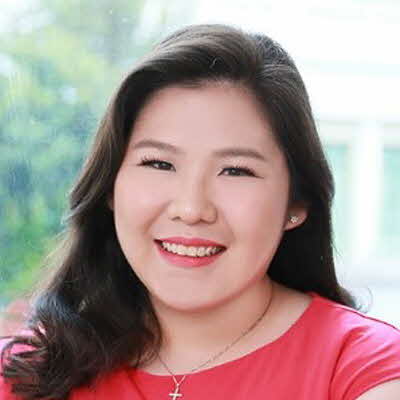
Ms Kristine Lam
Kristine graduated from the National University of Singapore with a Bachelor of Arts degree majoring in Social Work in 2012. She has been involved in the Family Protection Work for about a decade. In her work through CCPS, she participated in the NFVNS committee, Family Violence Working Group (FVWG), development of the Sector Specific Screening Guide and the Child Abuse Reporting Guide and is currently chairing FVWG Clementi. In 2016, Kristine was awarded the FVDG Appreciation Award. In 2017, she was awarded the Promising Social Worker Award by the President, Madam Halimah Yacob. Presently, she is a Principal Social Worker at Care Corner Singapore Ltd, overseeing a part of the service planning, development and implementation of the agency and supervision of social work staff.

Ms Jae Liew
Jae Liew graduated from Monash University, Melbourne, with a Master of Social Work in 2020. She started her career in Australia in community mental health, working with people with high complex mental illnesses. Jae later moved to work in foster care case management with families and children displaced from their homes. In 2020, upon returning to Singapore, Jae decided to pursue a career in family protection, working with families experiencing family violence. In her work at CCPS, she has supported many families through direct case management, advocacy in multi-disciplinary team, worked with systems and hosted networking and public education events.
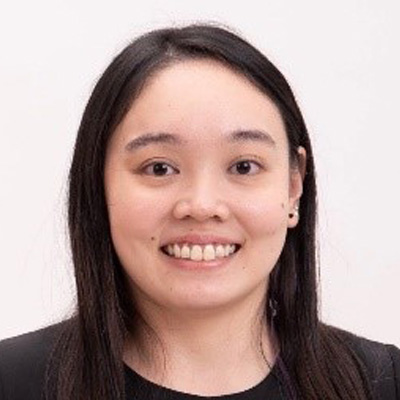
Ms Wong Siong Yee
Siong Yee graduated from the National University of Singapore in 2019 with a Bachelor of Arts degree majoring in Psychology, with a second major in Life Sciences. Having a keen interest in working directly with individuals and families, she decided to pursue a career in social work and started out at CCPS. In her work, Siong Yee has supported many families experiencing family violence in direct case management and one of her core involvements include working with vulnerable older adults experiencing abuse and neglect. She will be completing her Post-Graduate Diploma in Social Work at the National University of Singapore in 2023.
Synopsis
In 2017, CCPS observed a new trend where parents were reporting abuse by their adult children who were unable and/or unwilling to be launched into adulthood. A dedicated team was set up to understand the dynamics and nuances within these families that differentiated them from other family violence dynamics. Using both international research findings and ground experience, the team created a differentiated approach in managing families that presented with Adult Entrenched Dependency (AED). CCPS has also conducted a group work program in 2019 to support parents experiencing abuse from their adult children.
AED is a chronic and systemic family dynamics where the adult offspring is dependent on the parent to provide age-inappropriate services (Lebowitz, Dolberger, Nortov and Omer, 2012) [1]
AED is a concern in family violence practice as the dynamics can escalate to violence towards the parent when the parent does not accommodate the adult child’s dependency. To mitigate risk of violence, the parent may resort to accommodating the adult child. Over time, it forms a vicious cycle where the adult child threatens to use or uses violence to get what they want, and the parent uses accommodating behaviour to reduce the chances of recurrence of violence. This sustains the AED dynamics.
Like all family violence dynamics, focusing on safety alone usually only manages the risk for a short period of time. Thus, a more robust and comprehensive practice modality that deals with what sustains the dynamic is needed to achieve longer term safety for the families. This workshop will address how to assess an AED dynamic, some of the challenges in supporting families experiencing AED, and how to work with such families to achieve longer term safety.
[1] Lebowitz, E. R., Dolberger, D, Nortov, E & Omer, H. (2012). Parent training in non-violent resistance for adult entitled dependence. Family Process, 51(1):1–17.
Narrative Therapy with Men who have Abused
By Ang Mo Kio Family Service Centre (AMKFSC)
AMKFSC - Narrative Therapy with Men who use Violence.pdf
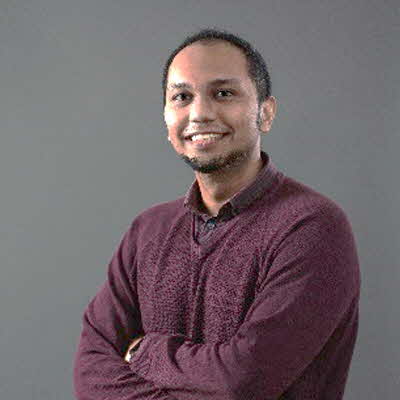
Fareez has been a social worker at AMKFSC Community Services Ltd for more than 15 years. He has a Master in Social Sciences (Social Work) from the National University of Singapore, and Master in Narrative Therapy and Community Work from the University of Melbourne. As a member of the Narrative international teaching faculty of Dulwich Centre (Adelaide), Fareez has keen interests in incorporating collaborative practices with individuals, groups, and communities across various areas and issues. Fareez has conducted Narrative workshops and trainings across various international contexts in Canada, Australia, Israel, Palestine, India and Nepal. Fareez was the recipient of the Promising Social Worker Award in 2011, and the Prime Minister Social Service Award in 2012.
Synopsis
A Narrative Approach privileges the stories of persons and communities, via a respectful non-blaming approach, where people are centered as experts in their own lives. This stance can prove challenging when working with men who have abused, where practitioners are required to take an ethical stance against violence. Influenced by feminist approaches, Narrative therapy acknowledges the discourses of stereotypical masculine and feminine roles as aspects that need to be reflected on during therapeutic work.
This workshop discusses strategies influenced by Narrative theory, where practitioners support men in uncovering the operations of power and control, where the man’s expertise is acknowledged. This can be attained through asking carefully structured questions to facilitate self-reflection.
The following strategies would be discussed:
- Centering Men’s knowledge and skills, as well as their aspirations and hopes
- Deconstruction of perceptions of masculinities
- Tools to support conversations with Men who have abused
Speakers - Concurrent Workshops 2
“PAVE’d My Path” – Taking Inspiration from Men who Abuse
By PAVE Integrated Services for Individual and Family Protection Specialist Centre (ISIFPSC)
NFVNS - PAVE - PAVe_d my path.pdf
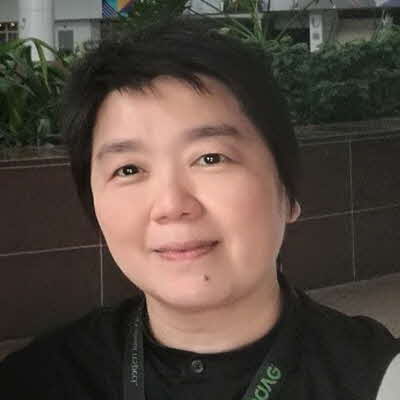
Ms Pang Kee Tai
Kee Tai is the Senior Deputy Director in PAVE and leads its training programme. A social worker by profession, she counts it her privilege to have worked alongside individuals, families and community partners in the management of interpersonal and family violence since PAVE’s inception in 1999.
She has more than three decades of experience supporting multi-stressed families, providing individual counselling, facilitating men’s groups, providing training on the issue of family violence to various professionals such as the police, social service practitioners, medical personnel, grassroots leaders and educators. She also co-authored PAVE’s publication “Engaging Men Who Abuse”.
Synopsis
“PAVE’d My Path” was the title of a reflection piece written by one man after he had gone through the men’s programme and worked alongside social workers in reintegrating with his family. This workshop draws inspiration from our work with men who abuse and how it has morphed through the years.
The philosophy has remained the same: using power and coercive control and challenging abusive beliefs as our central focus in facilitating men’s change. This also includes the simultaneous engagement of the spouse, children and the family ecology. However, added layers of evidence-based knowledge and practices have definitely strengthened our practice with men who abuse in a holistic manner. This workshop will explore what we have learnt from engaging men who abuse, and their family, and if we are paving the right path with them.
Understanding Intrafamilial Sexual and Physical Violence and how Social Systems can Support Perpetrators and Victims in the Community
By PAVE Integrated Services for Individual and Family Protection Specialist Centre (ISIFPSC)
Singapore Prison Service - Intrafamilial Sexual Violence.pdf
Speakers
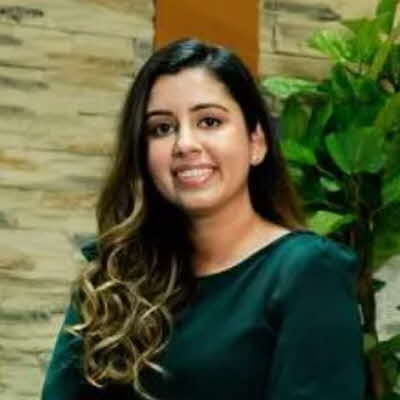
Ms Arvina Manon
Arvina holds a Master of Science in Clinical Forensic Psychology and is a Lead Psychologist with the SPS. Her clinical experience involves conducting risk assessments and providing group-based and individual interventions for offenders with violence, sexual violence and mental health needs. In her current role as Assistant Director of the Sexual Violence Unit, she oversees the assessment and rehabilitation processes for offenders convicted of sexual offences. This includes conceptualising and implementing frameworks and policies for managing these offenders and providing consultation to stakeholders on sexual offending. Fuelled by passion, Arvina enjoys enhancing current perspectives of the sexual offending population and developing strategies to address systemic needs. She is especially inspired to support her clients in embarking on journeys of hope, resilience, and change. Prior to her current role, she spent six years developing and implementing multiple psychology-based correctional programmes for the local offender population.
.jpg?sfvrsn=8759064e_3)
Ms Ch’ng Wei Lin, Charmaine
Charmaine holds a Bachelor in Psychology (Honours) and is a psychologist working in the PSB. She conducts risk assessments and provides group and individual psychological intervention for violent and sexual offenders in the SPS. Her job scope also involves managing assessment and intervention referrals, developing and evaluating rehabilitation programmes and activities, as well as reviewing policies of adult male sexual offenders. She is currently involved in conducting research relating to sexual offenders who commit Outrage of Modesty and is also part of the National Committee on Prevention, Rehabilitation and Recidivism Project subgroup on Youth Sexual Offending in Singapore.
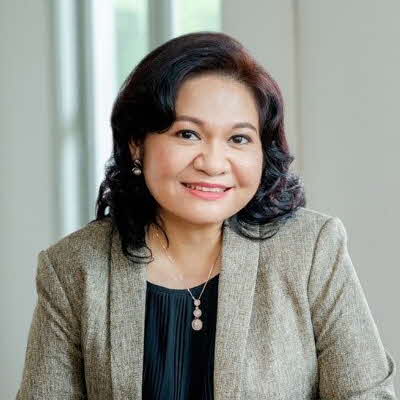
Ms Rashida Mohamed Zain
Rashida is the Assistant Director and Lead Psychologist in the PSB. She holds a Master in Psychology (Clinical). Rashida oversees the General Violence Unit that is involved in the rehabilitation and policy matters of the general and family violence offender population. Rashida’s passion is in restoring family relationships using evidence-based psychological approaches to transform dysfunctional into functional relationships. She is involved in the setting up of inmate-led fathers support group in prisons and has been active in implementing initiatives to bring families closer despite the prison walls.
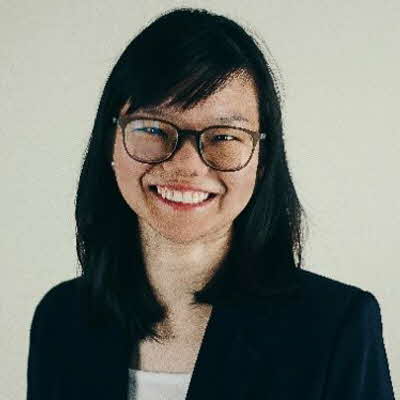
Ms Jane Quek
Jane holds a Master of Science in Psychology and is a senior psychologist with the General Violence Unit at PSB. She undertakes the operational work relating to risk assessment and rehabilitation of violent offenders within PSB and has conducted research into family violence and fathering. Jane also has experience in providing psychological support to frontline Home Team operations, such as the Crisis Negotiation Unit (with Singapore Police Force). Formally trained on critical incident stress management (certified by International Critical Incident Stress Foundations) and Psychological First Aid (endorsed by World Health Organisation) skills, she has also provided psychological support to numerous enforcement operations and national crises, including the Kovan Double Murder and Air Asia air crash.
Synopsis
Family violence (FV), including physical and sexual acts of abuse, is a significant concern, occurring across all socioeconomic and demographic groups. These types of violence can have a serious impact on individuals, families and communities, and can inflict physical injury and psychological harm. Some of these effects can be long-lasting and can affect future generations. Hence, collaborative efforts between professionals from the criminal justice system and community agencies is essential to help families navigate the profound impact of FV. Areas of collaboration can include rehabilitation with the person causing harm, trauma-care for the survivor(s) and reparation of relationships (if there is safety).
This workshop by the SPS psychologists will focus on understanding intrafamilial sexual offending, examine how risk factors that contribute to intrafamilial sexual offending can be addressed, while strengthening factors that contribute to the desistance of persons causing harm. We will also share our approach for working with offenders who commit physical family violence. Importantly, the aim is to create opportunities for collaboration between the criminal justice system and community agencies when delving into treatment considerations and management strategies for working with persons causing harm (physical and sexual violence) and supporting families in the community.
Beyond Safety – to Restoration
By Lutheran Community Care Services (LCCS) and Society Against Family Violence (SAFV)
NFVNS LCCS & SAFV - Beyond Safety _ to Restoration (1).pdf
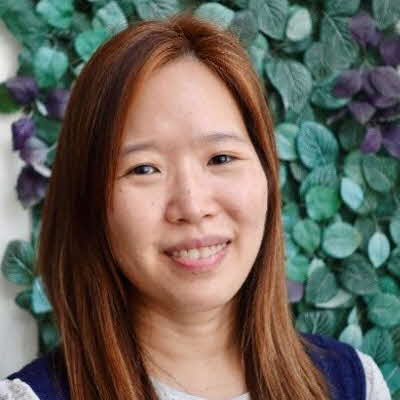
Ms Deborah Wan
Deborah Wan is a Senior Counsellor at LCCS and a member of the SAFV. She had obtained a Master of Arts in Counseling Psychology from Boston College, USA and a Bachelor of Social Science (Hons) in Psychology from the National University of Singapore. Deborah is also trained in restorative practices by the International Institute for Restorative Practices and Systemic Thinking and Approaches by Counselling and Care Centre. Being passionate about children and youth work, Deborah underwent training with the Academy of Play and Child Psychotherapy, UK in therapeutic play and is working on integrating play, symbol work and sandtray therapy in her practice.
Following a sabbatical at the Summer Peacebuilding Institute at Eastern Mennonite University, USA, Deborah gained an interest in exploring and understanding nonviolent ways of communicating and addressing conflict. She is currently exploring trauma-informed and creative dialogic processes to transform conflict, particularly addressing harm that has occurred in familial relationships.
Deborah is currently heading the Bridge to Hope project in LCCS, where practitioners work with individuals experiencing interpersonal violence to talk about the violence and to bring restoration and healing to individuals and families, including children, affected by family violence through promoting conversations in safe spaces. Deborah is currently serving as Honorary Treasurer of SAFV and has been a team member of the SAFV Helplink service since 2020.
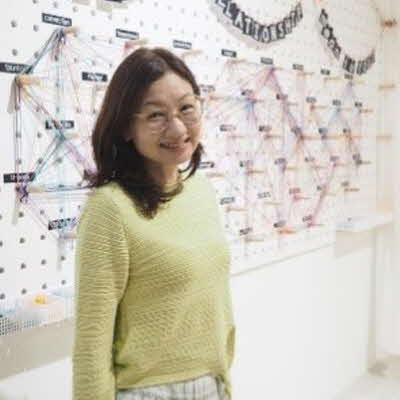
Ms Kek Seow Ling
Kek Seow Ling is a social work practitioner. She had obtained a Master’s in Social Science (Community Service Management) from the University of Wales, Swansea and a Bachelor in Social Science (Hons) in Social Work from the National University of Singapore. Seow Ling is also trained in restorative practices by the International Institute for Restorative Practices (IIRP) and Asset-Based Community-Driven Development by Nurture Development, Ireland. In her many years of social work practice, she is involved in case management, community work, social work supervision and management.
Seow Ling had presented on ‘Restorative Justice and Social Work in Singapore’ at the IIRP 23rd World Conference held in Bethlehem, Pennsylvania, USA in October 2017, the Asian Family Summit held in Hong Kong in August 2018 and the LCCS Restorative Practice Conference held in Singapore in November 2018. This topic is based on her experience in translating restorative practice to the community setting.
Believing that restorative practice is a way of being, Seow Ling had helped to establish a set of restorative practice principles to guide practice and organisational culture in LCCS. She also designed a training curriculum for Family Group Decision Making to promote a relational practice that respects family power and leadership. Together with her team, Seow Ling brought restorative practice into the domestic violence arena in Singapore. She desires to provide persons experiencing violence a different experience – one of safety, care and empowerment, when addressing violence.
Seow Ling is currently a member of the IIRP Board of Trustees and the SAFV. She is currently pursuing a Master in Restorative Justice from the Vermont Law School, USA.
Synopsis
This workshop attempts to offer a restorative justice approach to journey with persons using and affected by family violence. Anchored in the concept of shame, restorative justice offers a relational lens to address the issue of family violence. Recognising that relationships are complex, restorative justice offers a pathway to restoration of relationships through sharing, respecting power and promoting active responsibility of affected parties. It promotes voice, agency and belongingness through facilitated conversations in safe spaces. A restorative justice approach can certainly bridge the gap in practice orientations in the current social service landscape.
Introduced in 2008, the FVDG Appreciation Awards aims to:
1) Promote inter-agency recognition of individual and team contributions in the management of family violence cases; and
2) Motivate professionals to improve service delivery and to work towards a coordinated response in the management of family violence cases.
Registration
Question: How do I register?
You may register online through the registration link that is found in the email invitation.
Question: Can someone register on my behalf?
Yes. Please ensure that the email addresses and other details are correctly reflected in the registration form. Subsequent conference updates will be sent to each successful registrant
via the email address provided.
Question: Do I need to pay to attend the Conference?
No. Attendance at the NFVNS Conference 2022 is complimentary, and by invitation only.
Question: When does registration close?
Registration will close on 8 November (Tuesday) and successful registrants will receive a confirmation email by 9 November (Wednesday).
On the Day of the Conference
Question: How do I get to the venue?
Here are the train and bus services to the venue:
Nearest MRT Station
Jurong East (within walking distance, approx. 10 min)
Chartered Shuttle Bus
Available every 10 mins between 8am and 9am (Jurong East MRT)
Bus Stop Number
Outside THE CHEVRONS (28049)
Opposite THE CHEVRONS (28041)
Bus Services
SBS 99, 52, 105 and 502 (Express Service)
SMRT 188
From Jurong East Interchange: SBS 52, 105
Question: Would there be parking available?
Yes, parking is available at The Chevrons.
Alternative Parking:
The Furniture Mall (Beside The Chevrons)
The Strategy and The Synergy (Opposite The Chevrons)
After the Conference
Question: Will the conference presentations and materials be made available to participants after the event?
The conference materials will be made available to conference invitees within two weeks of the conference.
Contact Us
If you have any questions relating to the conference and registration, please contact our appointed conference organiser at NFVNS2022@sgrsvp.com.